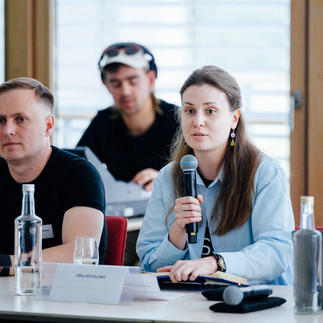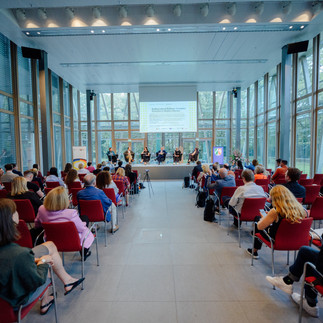On May 21, the conference called ‘Building Internal Resilience: Corruption Prevention in Ukraine’s Recovery’ took place in Berlin. The event, organized by the German-Ukrainian Bureau and Anti-Corruption Action Centre, aimed to showcase Ukraine’s efforts in tackling corruption across various sectors, particularly in the face of the upcoming Ukraine Recovery Conference 2024 in Berlin.
Throughout the workshops, Ukrainian, German, and international experts made an honest stock of Ukraine’s anti-corruption efforts since 2014, especially since the start of the full-scale war. For the last ten years and amidst extra high societal demand for justice and zero corruption, Ukraine has delivered significant achievements. Among them are the new anti-corruption ecosystem of institutions, and many far-reaching transparency mechanisms, like the ProZorro Procurement platform or the e-declaration system for the 1 million Ukrainian public servants and politicians.
Experts especially focused on the road ahead to prevent and combat graft when it comes to Ukraine’s recovery on the national and local levels. As one of the key instruments for transparent and accountable reconstruction experts discussed the Digital Restoration Ecosystem for Accountable Management (DREAM). The platform allows everyone to monitor each step of the planned and ongoing reconstruction projects and critically it allows local authorities to create projects and pitch them to international donors. As such, DREAM has the potential to be as crucial to the integrity of the recovery as ProZorro has been for wider public procurement. Experts highlighted the platform is not yet compulsory and few international donors are using it.
While the established anti-corruption infrastructure focuses on combating high-level political corruption, the vast majority of corruption cases are handled by the yet largely unreformed National Police. From the Economic Security Bureau, Anti-Monopoly Commission, Audit Chamber, Security Services and National Police Ukraine, etc., several institutions have yet to be modernized and reformed. One of the important lessons from the successful anti-corruption architecture and ongoing judicial reform is that the new institutions, which enjoy far-reaching competencies, selected their leadership in transparent and meritocratic selection processes. Important criteria for the candidates were not only professionalism but also a high level of integrity.
When it comes to reconstruction at the local level, it should stand on good governance principles, since it is easier to prevent corruption than to fight it. Decentralization reform, which is considered one of Ukraine's greatest successes over the past 10 years, pushes the anti-corruption agenda forward. Cooperation with international donors drove transparency of local authorities. Amid regular rocket attacks, lack of human capacity and despite other challenges of war, the Ukrainian cities managed to make some progress and increased their transparency, according to the study of city transparency conducted by Transparency International Ukraine. In particular, the budgeting process is becoming more transparent, and a large number of digital solutions have emerged at the local level (e.g., tools for engaging in decision-making, a public notification system, etc.).
We are grateful for the support of our partners that made this event possible: the German Platform for the Reconstruction of Ukraine, the EU Anti-Corruption Initiative, the German State of North-Rhine Westphalia, and Democracy Reporting International.
Reminding you the Program of the conference.
Photos by Pavlo Slobodnychenko, check the full album here.
























Comments